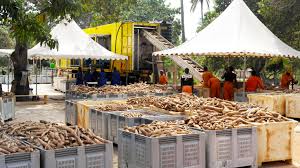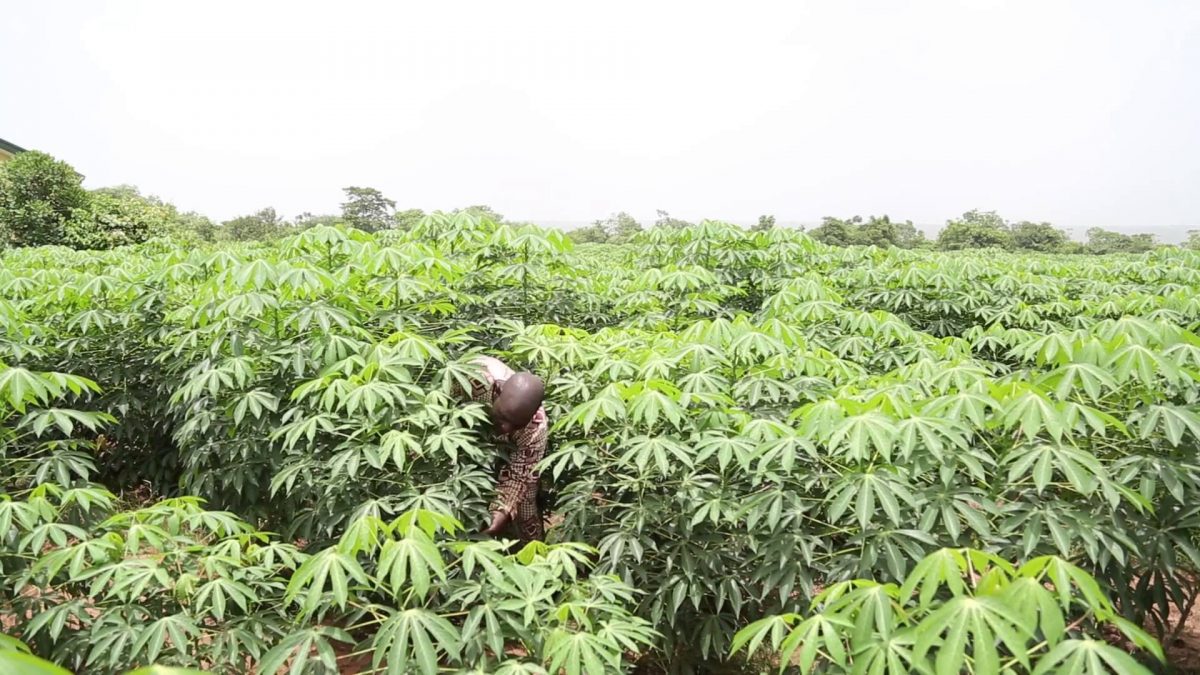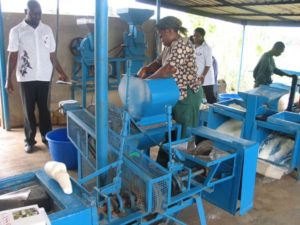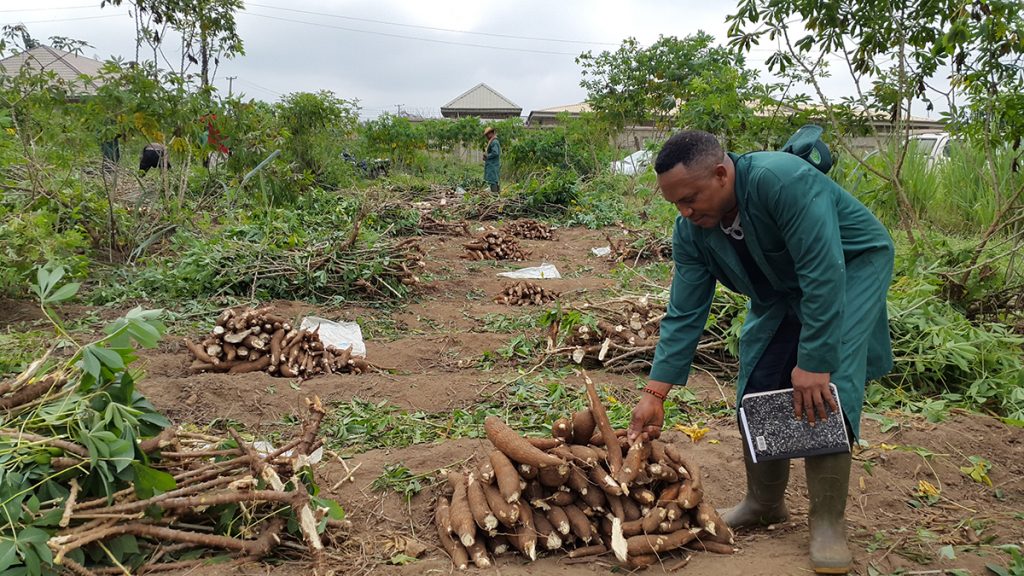HOW TO START A PROFITABLE CASSAVA PROCESSING BUSINESS By Uwem Bassey
 HOW TO START A PROFITABLE CASSAVA PROCESSING BUSINESS
HOW TO START A PROFITABLE CASSAVA PROCESSING BUSINESS
Cassava processing business is enriching a lot of Nigerians. Once you know the basics and are truly interested in making cool money by feeding people, the rest is history. Cassava is one of the most consumed foods in Nigeria and can be processed into a variety of forms for consumption. The market for cassava is quite large band is constantly ever growing, as it is being produced jot only for Nigerians but is also being exported to other African countries. I’m going to show you a piece by piece guide on how you can start your own cassava processing business in Nigeria.
CAPITAL REQUIREMENTS: Of course, the first major step in launching any business is the ability to meet certain capital requirements, and cassava processing is not an exception. You need to run a feasibility studies to determine the pros and cons of the business. Now, depending on your particular location in Nigeria, going into commercial cassava farming can involve relatively large amounts of money. You will need to acquire a sizeable farmland, this of course will depend on the quantity of cassava you want to produce and the technique you will use in processing your products. Next thing is to develop a good business feasibility plan and then raising the required capital for the business.
ACQUIRING THE FARMLAND: Cassava grows best on a flat or slightly sloppy land which is composed of humus soil and has the capacity to retain water. Still, cassava is a crop that is capable of surviving drought. The land must be located in an area with adequate amounts of rainfall. The farmland should contain dense vegetation, which is likely to favour the cultivation of cassava, and will significantly increase yield of crops. However, for best yield of the cassava crops, ensure that the land you acquire is mostly loamy soil, as sandy or clay soil do not support proper growth and development of cassava. Next, you need to develop the land to encourage maximum yield of crops.
There are certain agricultural techniques you should carry out on the land to improve its suitability for cassava production. Listed here are:
1. Manure application. Soil fertility can be greatly improved by adding manure to the land. You should use green manure in the form of dead plants or plant crops such as beans, groundnut, and the likes. Or you could apply animal wastes, which are also a rich source of manure.
2. Inter cropping. Legumes provide an excellent source f soil nutrients. Inter cropping cassava alongside crops like rice, maize, cowpea, legumes help improve the soil’s nutrient.
3. Mulching. This involves covering the surface of the farmland with lots of dead foliage (known as mulch). Materials you can use as dead foliage include, race husk, coffee hull and foliage from leguminous crops.
4. Select the best variety. The variety, cassava you use has a direct impact on its yield rate. So you need to look for a variety that grows well, is immune against diseases, and also one that matures early (say 8-9months).
 HOW TO START A PROFITABLE CASSAVA PROCESSING BUSINESS
HOW TO START A PROFITABLE CASSAVA PROCESSING BUSINESS
PLANTING: To plant your cassava, you will need to first till the land, using either manual or mechanical labour or even both. Next, start planting your cassava stems. To do this, insert about two-thirds of the original length of the stems into the soil. It is advisable to start early as cassava farming requires adequate water supply for rapid growth and to produce maximum yield. An hectare of land can produce about 14-19 tons of cassava( depending on the variety) And of course regular weeding is required to ensure the crops gets sufficient nutrient supply from the soil.
FERTILIZERS: These fertilizers are recommended for use – NPK 15:15:15-2 (50Kg) bags – NPK 12:12:17-15 (50kg) bags – NPK 20:10:10-9 (50kg) bags Fertilizer application should be done after the first 8 weeks of planting.
COSTINGS: Land preparation…………..#10,000 Cassava stem cuttings ( 60 bundles at #200 per bundle)…#12,000 Planting ( 6 persons at #1000)….#6000 Pre-emergence herbicides ( 5litres at #1000 per litre)…#5000 Fertilizer (20:10:10, 9 bags at #2500/bag)…#22,000 Insecticide application…#3000 Herbicide application …#3000 Fertilizer labour( 4persons at #1000/pd)…#4000 Weeding( 10persons at #1000/pd)…#10000 Harvesting labour ( 15 persons at #1500/pd)…#17500 Total……….#95000 Note: labour wage rates vary from location to location. Fixed capital investments have not been included, capital investments such as, knapsack or boom sprayers, tractors or power- tillers, stem cutters, planters, and harvesters.
 HOW TO START A PROFITABLE CASSAVA PROCESSING BUSINESS
HOW TO START A PROFITABLE CASSAVA PROCESSING BUSINESS
PROCESSING EQUIPMENTS: Farming these days has been made a lot easier with the use of farming machines. Farming mechanization has seen great advancements over the years. Unlike times past when farmers largely relied on local and crude methods of processing. Before now, cassava processing such as peeling, grating, sieving and so on was done manually , like peeling using knives, manual grating, tying with sticks to dewater, sieving with mesh and frying under intense heat. Modern technology is contributing immensely to cassava production in Nigeria. Cassava processing equipments cost a lot of money, but it is a worthwhile venture. Other equipments include: stainless steel hammer mill having a 1tone/ hour capacity, which costs about #650,000 Fermentation racks, press jack which cost about #500,000 Stainless steel granulator with 7.5HP electric motor which has the capacity of processing about 1tone/ hour and is priced at #500,000 Dewatering racks with mechanical press which costs about #500,000 Stainless steel garri roasting pot with 2Hp electric motor Fibreglass insulation, stainless steel paddle, and exhaust pipes. Heating can be done with gas, charcoal, firewood, palm kernel shells etc. It has a processing capacity of 2 tones a day and costs about #200,000.
PRODUCTION PROCESS: The processes involved during production of ‘garri’ or cassava flour from cassava involves the following – harvesting – peeling – grating – sieving – frying Generally the whole process of cassava production centres on harvesting and bringing the tubers close to the processing plant. The cassava crop can yield up to 15 different kinds of products when processed and each of these products have relatively large markets 
HOW TO START A PROFITABLE CASSAVA PROCESSING BUSINESS
HARVESTING: The very first step involved during cassava flour production is harvesting the cassava crops from the farm. This can either be done manually or by the use of harvesters. Peeling. Next thing to do after harvesting the cassava crops is peeling the outer skin, which can also be done manually using knives or peeling machines, as listed above Grating. The peeled cassava crops are then being prepared for grating either manually or with the use of grating machines. Though it is recommended to use modern methods in grating the cassava Sieving. The next process involved after grating is sieving the grated cassava to extract the main substance needed to produce the cassava flour or garri. This can either be done with the use of mesh or a sieving machine Frying. This is the last step in producing cassava flour, after which the cassava flour or garri is ready for packaging and consumption. To make the frying easier, you should use the frying machine which will enhance speed, especially for commercial production of the flour, when the cassava crops are in large quantities.
PACKAGING: Generally, packaging of cassava products is mostly done with sack bags and also basins of various sizes ranging from 25-200kg. Cassava flour or ‘garri’ is usually packed with sack bags to enhance aeration, which will prevent it from rotting and inhibit fungal development. Other cassava products like fufu and starch are usually packed in nylon bags
MARKETING STRATEGY: first thing you need to know when planning your marketing strategy is getting a good location, once this is done, everything will fall in place. Cassava production business doesn’t require any particularly serious market strategy. The fact is there will always be buyers for your products. You can even opt for supplying other marketers or engaging distributors for your products, the choice is yours.
PROFITABILITY: The cassava processing business in Nigeria holds a lot of prospects for wealth generation. The potential for profitably in cassava processing in Nigeria is so huge. This is largely due to the suitability of cassava to the soil across the country, which gas invariably resulted to its availability. And as such cassava products have a large market share and there is a high demand for cassava products in Nigeria. Nigeria is the world’s largest producer of cassava. According to FAOSTAT, around an average of 45.6% and 45.7% goes into feed and food respectively, while the larger percentage goes untapped. As a business enthusiast, which of course am hoping you are, this should be an opportunity to create wealth for yourself. Countries such as Thailand and Indonesia top the world’s cassava exports. The present demand for cassava in the Nigerian market is on the high side. So, getting into cassava processing business is probably one of the best gifts you can give yourself this year. I hope this article will help you kicks tart a good financial thrust in your life. So from me, its, GOOD LUCK!
To buy the remaining part of this business plan, including the detailed financial analysis, call any of our business plan consultants on 08105636015, 08076359735, and 08113205312. You can send a WhatsApp message or email us at dayohub@gmail.com or info@dayoadetiloye.com.
We help institutions and organizations write concepts, implement Business plans, and train on business Plan writing in Nigeria.
We can help you write a detailed, bankable and comprehensive business plan for your business idea.
Call any of our business plan consultants on 08105636015, 08076359735 and 08113205312
Or send a WhatsApp message or email us either at dayohub@gmail.com or info@dayoadetiloye.com.
Related